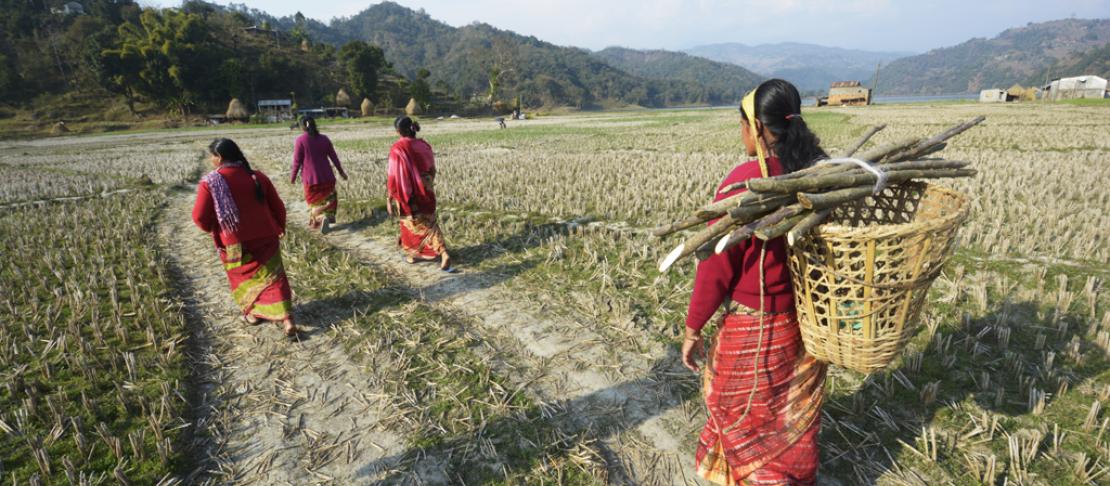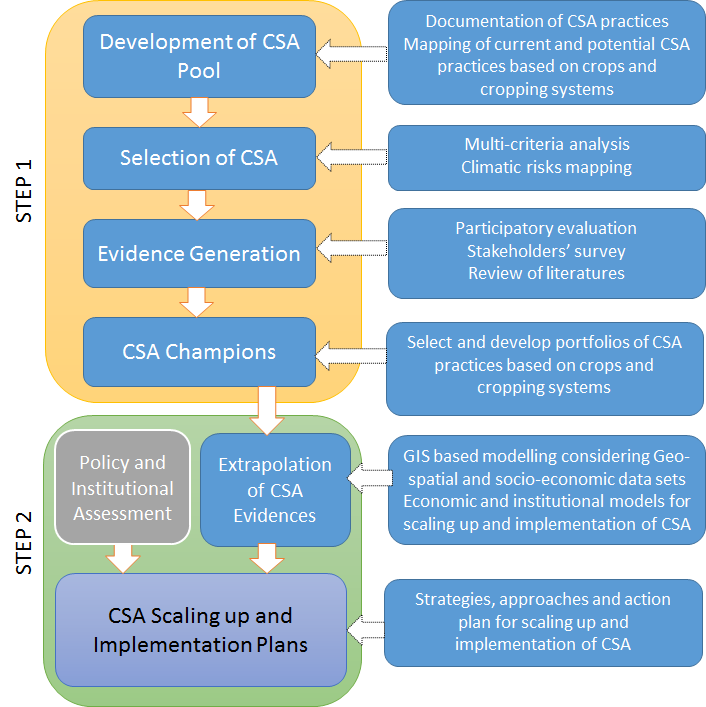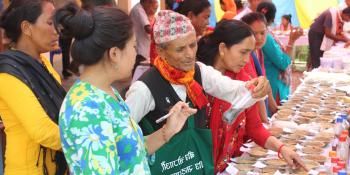Key stakeholders met to launch scaling up climate-smart agriculture project in Nepal

Local initiatives organized a project inception meeting to bring key stakeholders together and share project’s activities and implementation plan in Nepal.
A national inception workshop on 'Scaling-out Climate Smart Agriculture (CSA) in Nepal' was conducted on 30 July to share project activities and implementation plan with key stakeholders and collect feedback from them. Nearly 50 participants from the government, private sector, non-governmental organizations and research institutes attended the meeting. The government participants were from the Ministry of Agricultural Development (MoAD), Ministry of Federal Affairs and Local Development, National Agriculture Research Council (NARC), District Agriculture Development Office (DADO) and District Development Committee (DDC) in the project districts.
The inception workshop was inaugurated by the Chief Guest, Dr. Rajendra P Adhikari,Joint Secretary, Ministry of Agriculture Development (MoAD), Government of Nepal. Dr. Adkhkari has highlighted the importance of CSA and its linkages with Agricultural Development Strategy (ADS) of Nepal. He has shown keen interest in the project and underlined potential of department’s collaboration at national to local level. Dr. Balaram Thapa, Director of LI-BIRD, said:
This project has an aim to integrate experience of people concerning climate smart interventions in Nepal and globally to scale up in future”.
He also highlighted the importance of the project by linking with diverse agro-ecological conditions, climate change impacts on rural livelihood and potential to scale-up in Nepal.
The project in a nutshell was presented by Mr. Surendra Gautam, LI-BIRD. He shared about project objectives, outcomes, outputs, project sites, major activities until inception phase and some examples of CSA interventions.Dr. Arun Khatri-Chhetri from CCAFS South Asia shared about scope, opportunities, potential and constraints about scaling up climate smart agriculture in Nepal.

Figure 1: Methodological framework for developing CSA scaling-up and implementation plan for Nepal
Mr. Ram Chandra Khanal, CDKN Country Coordinator for Nepal put forward his remarks by saying:
“Talking only about climate change does not make sense until and unless there is proper linkage between climate change and development. Economic Impact Assessment of Climate Change in key sectors of Nepal reveals that 0.8% GDP in Agriculture has impact from climate change in Nepal. Adaptation measures and the activities combining adaptation and mitigation have to be integrated at local level for long term sustainability of the agricultural production system."
Mr. Pradeep Kumar Maharjan, CEO of Agriculture Enterprise Cooperation of Nepal put emphasis on private sector’s role in climate change adaptation in agriculture and potential contribution in the project. Mr. Maharjan encouraged the project team to share the project outputs and achievements to the private sector.
Key recommendation from the participants
- Include key stakeholders in project implementation, monitoring/evaluation and development of CSA implementation pathway and guidelines
- Inform key outputs of the project to the government at different levels by organizing workshops and meetings
- Align with current government programs and Agricultural Development Strategy (ADS)
- Focus on capacity building of government staff at different levels.
Read more:
This project is financially supported by the Climate and Development Knowledge Network (CDKN) and implementing by Local Initiatives for Biodiversity, Research and Development (LI-BIRD) with technical support from the CGIAR Research Program on Climate Change, Agriculture and Food Security (CCAFS).
Mr. Surendra Gautam is the Senior Research Officer of the project.
Arun K Chhetri is Science Officer at CCAFS South Asia



